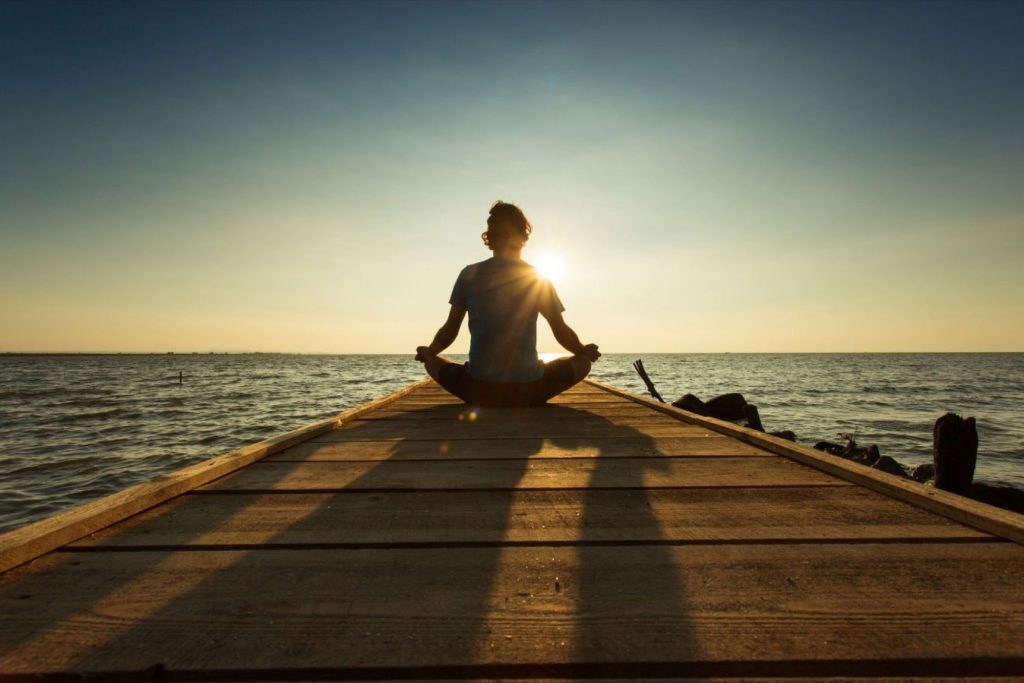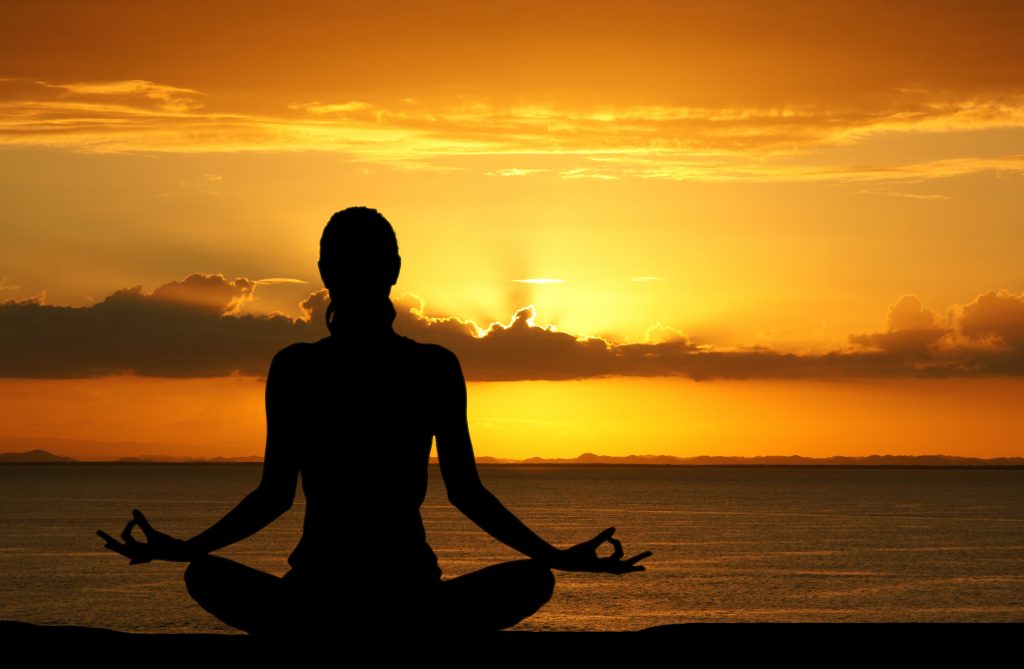Social media apps have become so intrinsic to our culture that it is easy to forget to question the extent of their influence on our lives. New Year’s Resolutions are not always easy to stick to, (as many of you who have nearly made it through your first experience of “Dry January” will attest!). This period of seasonal self-reflection is nevertheless a great opportunity to hit refresh on your relationship with your digital self, or at least identify the habits you’d like to change By looking at your presence on social media and using meditation to refine your use of these apps, you may find that your wellbeing improves in a few short weeks.
When approaching any refurbishment of the thought processes that underpin your day-to-day, it is vital to be able to look at the changes you are trying to make with a sense of perspective. Establishing a meditation practice can help you to effortlessly develop many different skills that will serve you in this journey. Regular meditation practice has documented benefits that include widening our horizons, deepening our capacity for self-compassion and sharpening our critical thinking faculties.
Posting our stories: tales as old as time?
There is no historical precedent for the technological advancement of our online social networks, but social networking itself is present in our anthropology since the dawn of time; reaching back to over 100,000 years ago.
Contemporary networks typically bring people together towards a specific purpose or interest. For instance, SchoolMates reconnects long-lost classmates, while on LinkedIn, headhunters prowl through the profiles of potential employees. This focussing of shared attention is not a new phenomenon. In hunter-gatherer societies, humans banded together to pursue particular common interests, such as slaughtering a mammoth for food or fending off a predator. In this context, an ancient technique for de-stressing, such as meditation, feels apt to apply to change the way we feel when we hit the apps.
When did it all get so complicated?
The gulf between paleolithic hobnobbing and a Facebook poke can seem so wide that it’s almost unbridgeable, but the chasm is full of ingenious methods for increasing the sophistication of social networking. For instance, barbed wire networking poles insulated with whiskey bottles were hoisted over fences by US farming families in the late 1800s, to create guerilla telephone network lines in areas that telephone companies refused to supply.
The “telegram” of today is an encrypted message from an eponymous app, (rather than an endearingly abbreviated and necessarily cryptic message, which you’d dictate over the phone to an operator while imagining them raising their eyebrows). All the different forms of historical social networks are united in their intrepid drive to make human connection possible. In this respect, it is not only the technology of the platforms we use to communicate that has evolved, however but the nature of the communication itself, and the problems it can potentiate.
The nature of social media as we know it today has changed with the advent of the blogging culture of the mid-1990s. Where once we sought primarily to communicate, the point of having an online presence has complexified, and our profiles now allow us to be seen, and to be part of a scene.
Having an online presence, and tending to its upkeep, is widely perceived as ubiquitous — whether or not your profiles have been made for particular purposes, and likewise (haha!) regardless of whether they’re bringing in the real-life gains you’d expect.
Is the time you spend stoking your summer holiday envy on Facebook really offset by the regularity with which you actually attend events you’d never otherwise have heard about? And has LinkedIn ever set you a serious career change, let alone a freshly skinned mammoth hide at the onset of a blizzard?
Critical thinking and perspective are the plugins you need
Social media as we know it made its explosive entrance onto the timeline of human existence as recently as the early-to-mid 2000s; (MySpace launched in 2003, Facebook in 2004; Twitter in 2006). Despite all the jaggedly unprecedented social phenomena it brings with it — from catfishing to ghosting — digital social media has woven seamlessly into the fabric of our culture.
When new features are added, we absorb them equally smoothly. Facebook “likes” were only introduced in 2009, for example. But in the wake of their uptake, can you imagine what it would feel like to press ‘post’ in any online context, without a flurry of follow-on feelings about its reception? We’ve all been visited by the butterflies of anxiety that dissipate as the “likes” tot up, and the twinges of self-conscious wistfulness if they peter out unacceptably soon. Tapping out of the emotional rat-race and into an awareness of a time before all this became normal is an ability that will transform your navigation through it.
Despite its almost inevitable ill-effects on our emotional health, however, the enthusiastic uptake of these platforms has hotwired a culture in which it is positively abnormal not to have a social media presence, and even more abnormal to think critically about its influence on our lives. This is particularly the case among teenagers, who experience a punitive Catch 22: notwithstanding the fact that cyberbullying is such a prevalent problem that the platform has had to develop additional functions allowing victims to neutralise onslaughts of offensive comments more rapidly, being “bullied for not having Facebook” is the inevitable alternative to creating a profile.
While pulling the plug on social media altogether is the preferred solution for some people, it’s possible to change our usage patterns, and their effects on us, so as to get the best out of social media while evading the sticky grip of its psychological snares.
Meditation using personalised mantras; filtering our impressions for 6000+ years
The platforms we use are ever-refining. However, when the basis of social networking itself is so firmly rooted in our past, it makes sense that another of humanity’s oldest pursuits can be called on to bring clarity and serenity to the ways in which we use communication networks. Beeja meditation is based on the Vedic tradition, which emerged from India some 6,000 years ago. Now practiced all over the world, its essence and essential elements remain the same.
Once you’ve received your personal mantra, selected on the basis of your birth dates and personal characteristics, the practice involves repeating this phrase silently in your head for two twenty-minute sessions per day. This ongoingly beneficial process reduces stress, calms the nervous system and, over time, strengthens many different coping mechanisms which can be helpful in cultivating a positive relationship with social media.
New year, new you; (no status update?)
As your meditation practice develops, so will your insights about your life-goals and the way in which various elements of your day-to-day existence interrelate with them. This extends to your relationship with social media.
There are various questions which it might be helpful to ask yourself, on an ongoing basis. How many visits do you make to each given app per day? Does each login have a clear purpose? Do you ever find yourself brooding about the content of posts you’ve seen on social media? Do your posts feel like an expression of joy or otherwise purpose-driven? (And, if not, why are you posting them?) Would you be delighted to have coffee with everyone you’re currently connected to? And what kinds of real-life benefits like new friends and exciting events are your online activities bringing to your life?
As you step back from unquestioning engagement with social media with the aid of meditation, into a detached mindset that allows you to conceptualize your profiles as a set of tools, you will be able to ensure that your digital self becomes an ever-increasingly helpful ally to your real one.
If you would like to explore how Beeja Meditation could help you change your habits and fulfil your potential, check out our courses and classes in London.
Words: Rosalind Stone

The Benefits of Beeja Meditation
- Reduce stress and anxiety
- Greater clarity and calm
- Increase focus
- Enhance relationships
- Sleep better
- Feel energised



